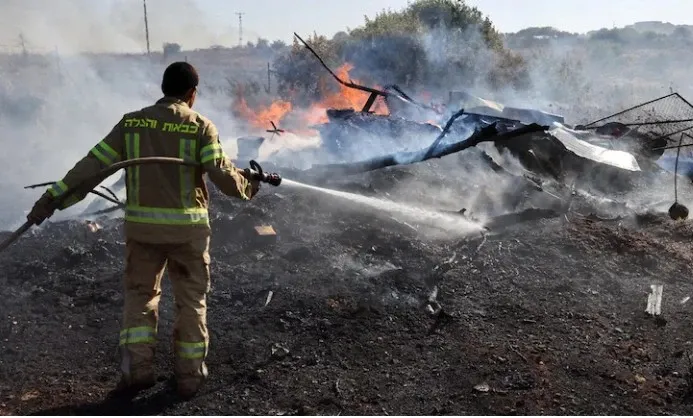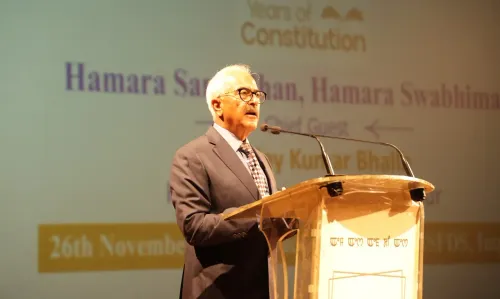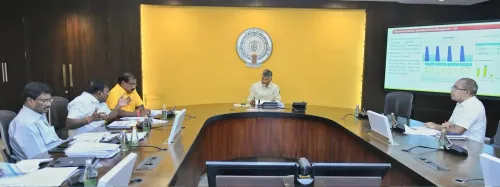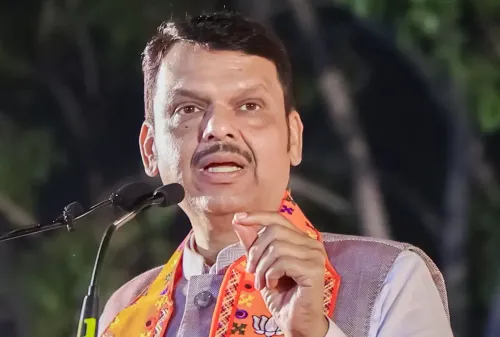Did the Israeli army eliminate a Hezbollah commander in Lebanon?

Synopsis
Key Takeaways
- Israeli drone strikes continue despite a ceasefire.
- Hezbollah commander killed in southern Lebanon.
- Strikes raise questions on regional stability.
- Innocent civilians are affected by cross-border conflicts.
- Calls for dialogue and peaceful resolutions are crucial.
Jerusalem/Beirut, May 22 (NationPress) The Israeli military reported that it executed a drone strike in southern Lebanon, resulting in the death of a commander from Hezbollah's elite Radwan force.
The military released a statement on Wednesday, indicating that the strike took place in the Yater region, although the name of the commander was not disclosed.
In contrast, Lebanon's official National News Agency (NNA), referencing Khalil Kourani, the head of Yater Municipality, stated that the deceased was identified as Ali Hassan Abdel Latif Sweidan, who was targeted while clearing rubble from his residence using an excavator.
Earlier that day, the Israeli military claimed responsibility for the death of Hussein Nazih Barji, a Hezbollah member linked to the group's weapons development initiative, during an Israeli drone strike in the Tyre area of southern Lebanon, according to the Xinhua news agency.
The NNA corroborated the attack but did not clarify whether the deceased was affiliated with Hezbollah.
These incidents mark the latest wave of Israeli strikes, despite a ceasefire established in November 2024 that concluded 14 months of cross-border skirmishes between Israel and Hezbollah.
The Israeli military disclosed that it targeted a Hezbollah operative involved in the group's weapons development program in the drone strike on Wednesday.
The individual, known as Hussein Nazih Barji, was hit while driving in the Tyre region, as per a military statement supported by surveillance footage.
Barji was termed a "central figure" in a Hezbollah directorate managing the development, manufacturing, and upkeep of weapons, including precision missiles, and enhancing the group's supply capabilities, as reported by Xinhua.
The military noted that Barji was "a veteran engineer responsible for constructing infrastructure for the production of precision surface-to-surface missiles".
His elimination was aimed at "disrupting Hezbollah's recovery efforts," the military added.
Israeli army spokesperson Avichay Adraee stated on social media that "Barji's actions constituted a clear breach of the agreements between Israel and Lebanon. The IDF (Israel Defense Forces) will persist in its efforts to eradicate any threats to the State of Israel."
The Lebanese Health Ministry validated the attack, stating that a "hostile" drone targeted a vehicle on the Housh-Ain Baal road in the Tyre district, leading to the death of one individual from the town of Ramadiyah.
Additionally, Lebanon's state-run National News Agency reported another fatality from an Israeli drone strike on Wednesday in the village of Yater.
On Monday, one Hezbollah member was killed, and three civilians sustained injuries due to a series of Israeli air and ground strikes across various regions in southern Lebanon.
The official National News Agency (NNA) indicated that an Israeli airstrike targeted the outskirts of the village of Houla, where a Hezbollah member named Issa Qutaish, originally from Houla, was killed.
The NNA also reported two additional incidents where two individuals were injured when an Israeli drone struck a motorcycle in the Wadi Sarbin area, while another person was hurt in the shoulder as Israeli forces opened fire on him at the entrance of Kafr Kila village.
These events highlight the ongoing series of Israeli strikes despite a ceasefire reached in November 2024 that ended 14 months of cross-border conflicts between Israel and Hezbollah.









